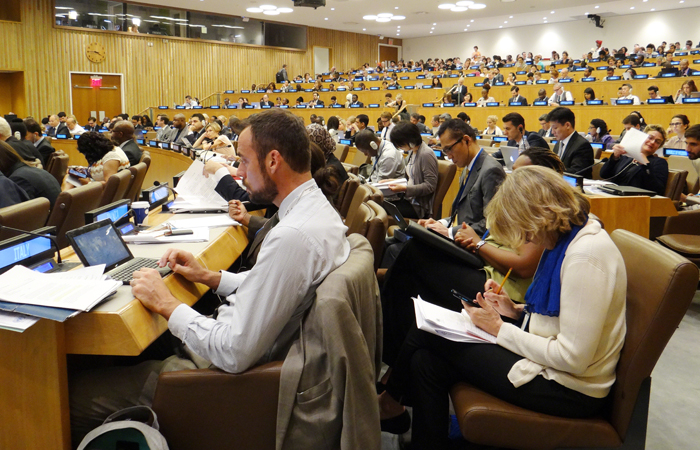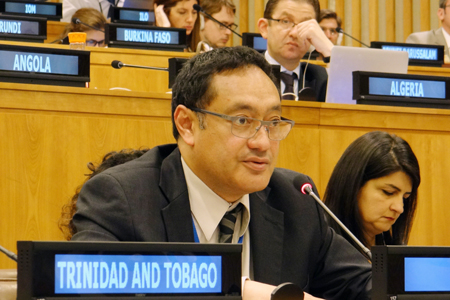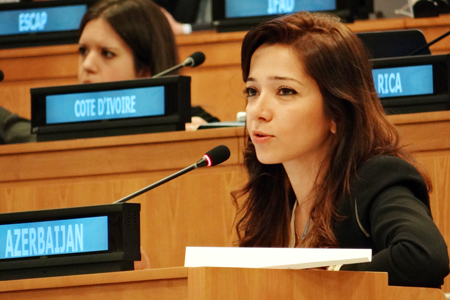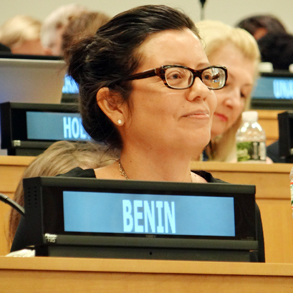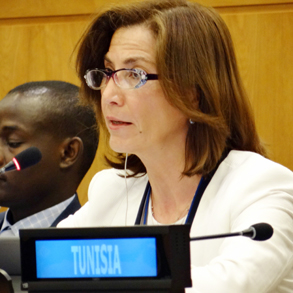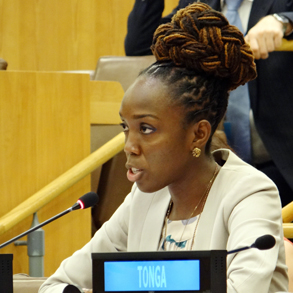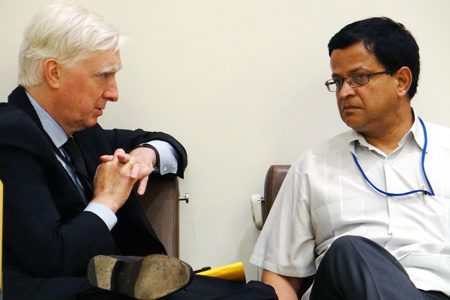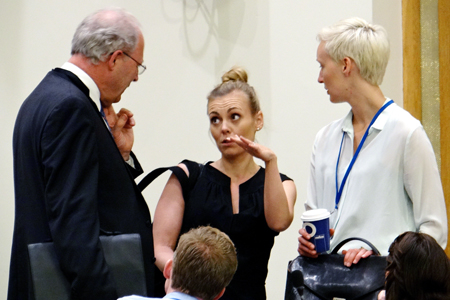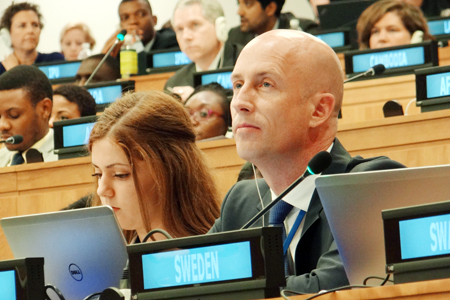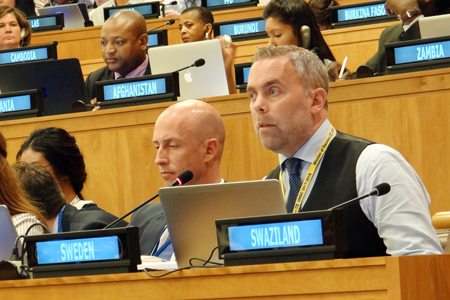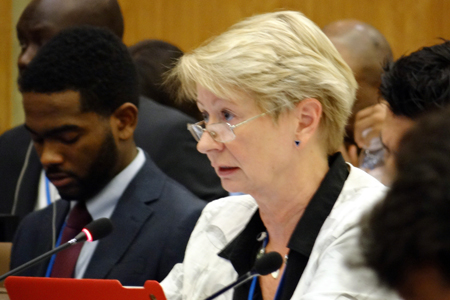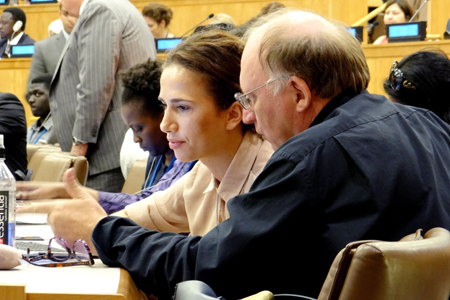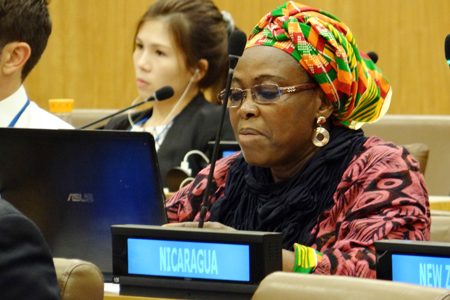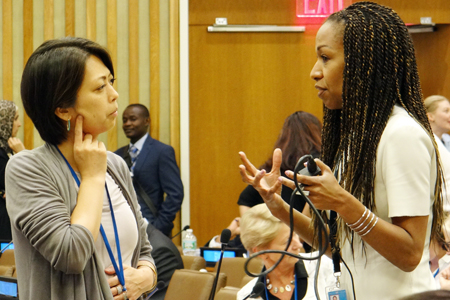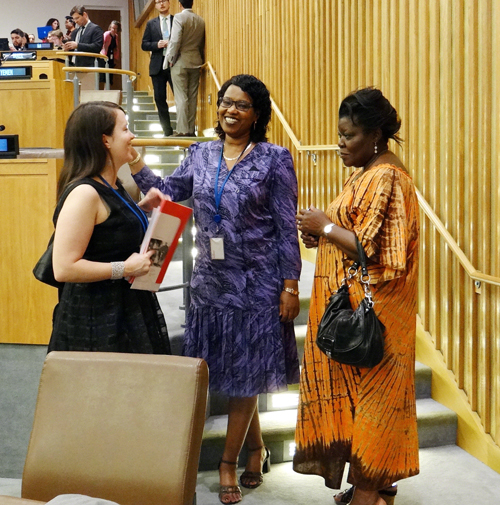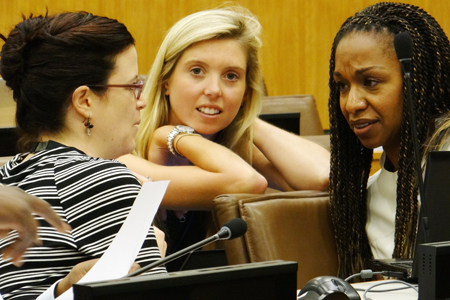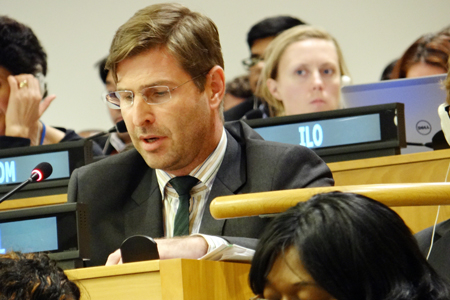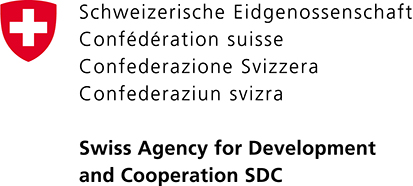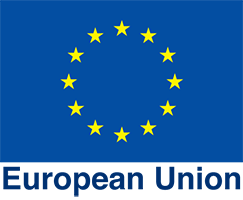|
 On Wednesday, 22 July, delegates discussed the Sustainable Development Goals (SDGs) and targets, which Co-Facilitator Macharia Kamau (Kenya) described as “the meat and the heart of the post-2015 development agenda.” Kamau highlighted that the challenge of the day would be to revisit the “tweaked” targets, adding that no changes would be made without broad consensus, failing which the Co-Facilitators would revert to the Open Working Group (OWG) text.
On Wednesday, 22 July, delegates discussed the Sustainable Development Goals (SDGs) and targets, which Co-Facilitator Macharia Kamau (Kenya) described as “the meat and the heart of the post-2015 development agenda.” Kamau highlighted that the challenge of the day would be to revisit the “tweaked” targets, adding that no changes would be made without broad consensus, failing which the Co-Facilitators would revert to the Open Working Group (OWG) text.
Regional groups laid out their positions in the morning, with the Group of 77 and China calling for the entire OWG report to be preserved in the outcome document, including its chapeau. The European Union, as well as a number of its Member States, and other developed countries, said the technical adjustments to the targets should be adopted in full, while the chapeau and reservations in the OWG’s report should not be included in the post-2015 outcome.
Delegates aired their views on the technical revisions that the Co-Facilitators had made to some of the targets, including whether or not to maintain the X’s in certain targets, on the understanding that every country will make its own commitment based on relevant data and capacity. They also considered whether to replace the X’s with another term, such as “substantially.” The Alliance of Small Island States (AOSIS), arguing in favor of maintaining the X’s, noted that measurability is problematic because of the lack of objective baselines, which in some cases makes it difficult to assess progress. A number of developed countries argued that Heads of State and Government cannot adopt a document that has X’s in it.
Regarding the revision of target 14.c, on the UN Convention on Law of the Sea (UNCLOS), following initial comments, New Zealand convened a group to discuss the matter informally.
Delegates also discussed whether or not to eliminate duplicate text on means of implementation (MOI) targets—currently in both Chapters 2 (targets and indicators) and 3 (MOI) of the final draft text.
In remarks at the end of the day, civil society organizations urged Member States not to drop their level of ambition, expressing concern about the revised 2030 timeline as being too far ahead, and saying these targets should provide a floor, not a ceiling for Member States.
|
|


